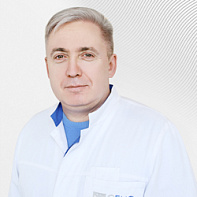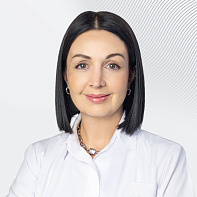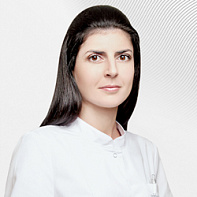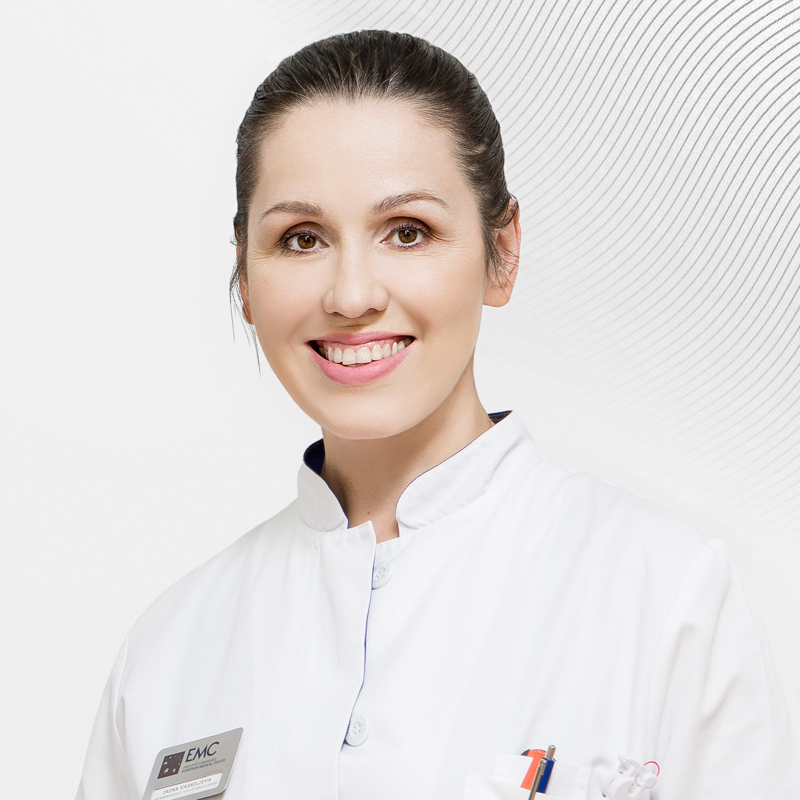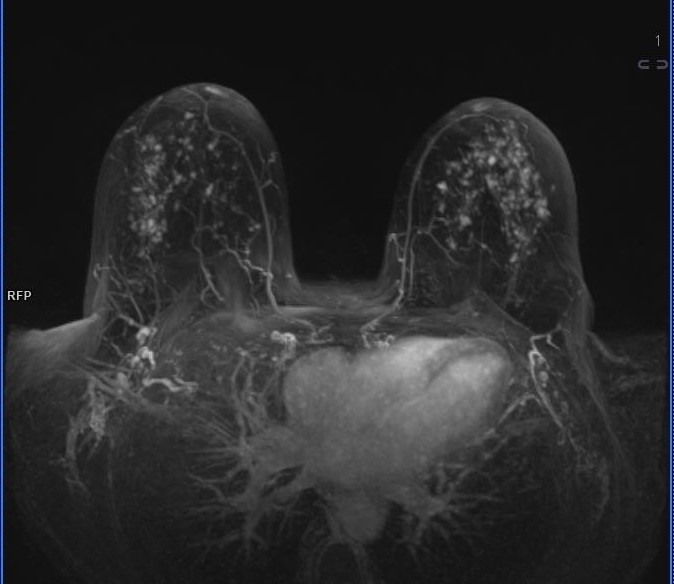
Advantages:
Breast MRI is a high—tech medical diagnostic method with 97% sensitivity (according to the American College of Radiology, 2013).
The procedure is completely painless and does not involve X-rays.
Detection of breast cancer at the earliest stages.
The ability to assess the extent of the tumor process, the condition of regional lymph nodes.
The method is informative for women with dense breast tissue.
Assessment of the condition of breast implants.
Indications for breast MRI with contrast:
- high genetic, family and personal risk of breast cancer ;
- determination of the prevalence of the tumor process;
- evaluation of the results of chemotherapy;
- silicone implants, scarringbreast cancer;
- differential diagnosis of benign tumors in case of ineffectiveness of other studies;
Important!
In women who undergo breast MRI once a year, the possibility of death from cancer is minimized.
MR mammography is recommended for all women at high risk of developing breast cancer at least once a year.
How is it conducted
- For women who have undergone breast surgery or radiation therapy - no earlier than 6 months;
- Breast MRI is performed from the 5th to the 12th day of the menstrual cycle, for menopausal women — any day.
- Before starting the study, the patient signs an informed consent form and answers the questionnaire questions. Contraindications to breast MRI correspond to the general contraindications to MRI examinations.
- Before performing an MRI of the breast, it is necessary to undress to the waist and remove all metal accessories and clothing items containing metal elements.
- In the gym, the patient lies face down on a special spool with holes for the mammary glands and face. Unlike mammography, there is no need to compress the breast during this study, so the procedure is absolutely painless.
- During an MRI scan of the breast with contrast through an intravenous catheter, the nurse injects a contrast agent. To diagnose cancer, this is a mandatory manipulation!
- When contrast enters the bloodstream, the patient may experience a cold or slight fever spreading along the vein.
- The contrast agent accumulates in the breast tissues. According to the rate of accumulation, concentration of the substance, as well as the rate of its leaching, experts assess the condition of the mammary glands.
-
Breast MRI takes up to 30 minutes (scan time).
- The results of the MR mammography are given out the next day in the form of printed films and on a DVD. The doctor prepares a conclusion and, if necessary, conducts a consultation.
Security
This technique is absolutely safe, as it does not carry radiation exposure. Intravenous administration of a contrast agent makes it possible to exclude the presence of a malignant tumor in the mammary glands.
At the EMC Mammology Clinic, magnetic resonance imaging (MRI) of the breast is performed using a new generation "Aero" Siemens device (1.5 tesla), which detects the formation of even a very small size (3-5 mm) as quickly as possible, significantly reduces the examination time and provides a clear, high-quality image.
Contraindications to breast MRI correspond to the general contraindications to MRI examinations.
Absolute contraindications:
- Allergy to contrast agent (Gadolinium rarely causes allergic reactions, but its administration is strictly prohibited in case of individual intolerance);
- Kidney disease (gadolinium can cause serious complications with existing kidney disease);
- The presence of an insulin pump: exposure to magnetic waves can affect the stable operation of the device.
Relative contraindications:
- Pregnancy period (1st trimester): The magnetic field can have a negative effect on the fetal development.
- Lactation: According to the American College of Radiology, the risk to a child from contrast dye is extremely low. However, if you are concerned, stop breastfeeding within 12-24 hours after the MRI scan, during which time the contrast agent is eliminated from the body.
- Claustrophobia (fear of enclosed spaces). In our clinic, the study can be performed with sedation.
- The presence of metal objects in the body (braces, implants) is a contraindication depending on the composition of the metal
- Weight 120-150 kg - CT scans are performed on patients with a maximum permissible weight of 180 kg. The patient's body circumference must be specified for a patient weighing 120 kg. You can usually do some research.

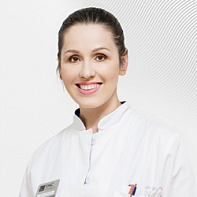

.jpg)
